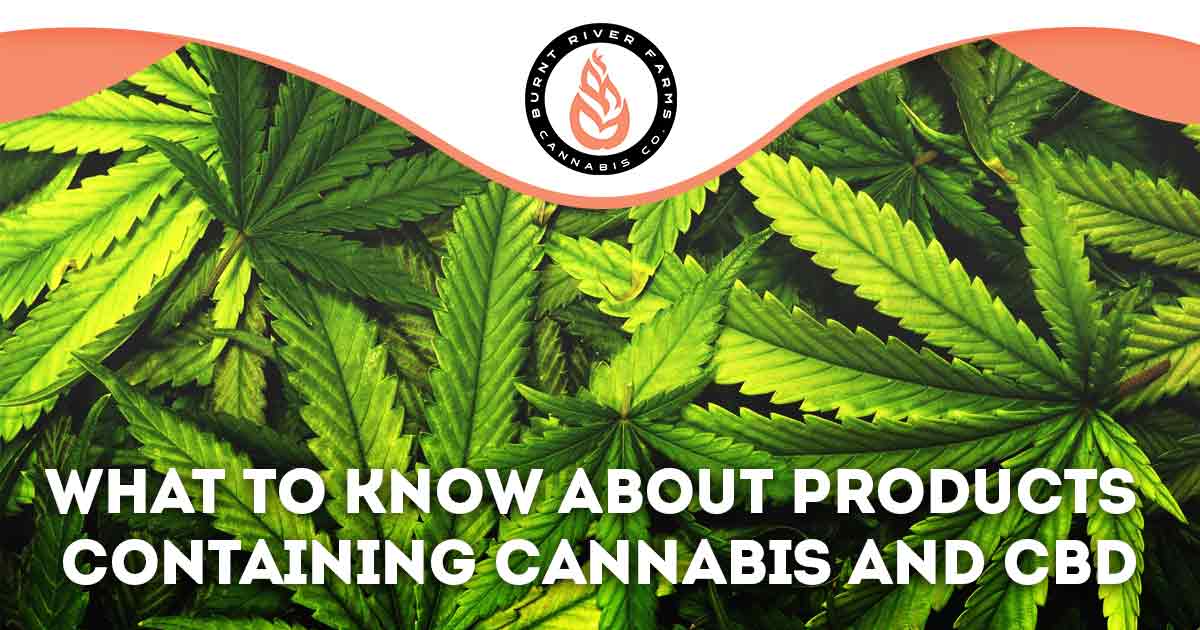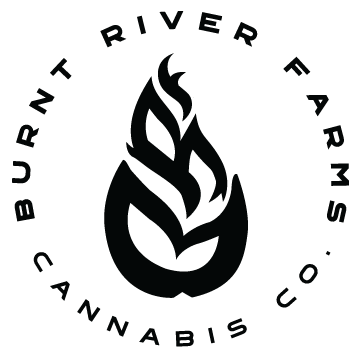What to Know About Products Containing Cannabis and CBD

With the growing popularity of cannabis products, it’s easy to get overwhelmed. This is especially true for someone who’s just trying marijuana for the first time, either recreationally or for medical use. We’re here to help you navigate the cannabis industry to ensure you’re getting the product that’s right for you. We’ll talk about what cannabis is, how it works, and what you need to know about products containing cannabis as well as CBD products.
Cannabis Basics: CBD vs. THC and Hemp vs. Marijuana
Since laws vary so greatly across the United States, it’s important to understand the difference between hemp and marijuana. In order to do that, we need to take a deeper look at the active ingredients of cannabis.
Cannabis plants create chemical compounds called cannabinoids. There are over 100 different types of cannabinoids, but the two most popular are cannabidiol (CBD) and tetrahydrocannabinol (THC). Both CBD and THC offer different therapeutic effects and health effects. Some states allow the sale of CBD products but not THC products while others allow both or none at all.
A hemp plant is defined as cannabis containing THC in quantities of 0.3% or less, while marijuana is a cannabis plant containing more than 0.3% THC, sometimes as much as 25%.
CBD vs. THC
It’s important to understand that there’s such a distinction between THC and CBD because THC is the cannabinoid that causes the user to feel the euphoric “high” feeling often associated with marijuana use. CBD is not psychoactive and does not result in the “high” feeling. Both cannabinoids provide a variety of effects, and both are often used as a treatment option for patients with various conditions.
CBD and THC interact with the body’s endocannabinoid system. This system regulates things such as pain, appetite, mood, sleep, and more. This is why so many people use cannabis or cannabis derived products for their therapeutic benefits. Cannabis is often used to ease chronic pain, anxiety disorder, multiple sclerosis, Alzheimer’s disease, Parkinson’s disease, and some forms of epilepsy such as Lennox-Gastaut syndrome. These are just a few of the conditions commonly treated with cannabis.
Many people who use cannabis products recreationally select products with higher levels of THC. This is because they often want the euphoria associated with this cannabinoid. It is important to note that drug tests look for THC so if you live in a state where products containing THC are illegal or if you work for an employer who regularly drug tests then you may want to reconsider using THC products. Drug tests do not screen for CBD, however, some CBD products do contain THC. It’s important to understand what cannabinoids are in the products you’re purchasing and at what concentration. The experienced personnel at your local dispensary should be able to help you with this.
Distillate, Isolate, Full-Spectrum, or Broad Spectrum: What’s the Difference?
There are additional terms you’ll see at your local dispensary. In addition to cannabinoids, cannabis has other components such as terpenes and flavonoids. These components contribute to the flavor and aroma of the cannabis. Some cannabis products remove these additional components. However, some do not. When the terpenes and flavonoids are combined with the cannabinoids it creates what is called the entourage effect. This can create a more well-rounded experience.
Full-spectrum products include all of the cannabinoids and terpenes possible as they’re extracted from the cannabis plant. Broad spectrum products try to retain the cannabinoids and terpenes but without the THC. These two options still allow the entourage effect, though broad-spectrum CBD oil has significantly less THC. A distillate removes everything except the desired cannabinoid. It is highly concentrated and potent. An isolate is the purest form of cannabinoid extract. The product you choose will depend on what you want to get out of it.
Purchasing Cannabis Products
When purchasing cannabis products, it’s important to remember that cannabis is still illegal according to federal law. While many states have legalized cannabis in one form or another, the federal status has made it difficult for researchers to perform studies, in-depth research, and clinical trials on the safety concerns, side effects, adverse effects, and long-term effects of using cannabis. As a result, quality evidence regarding health claims for cannabis or cannabis derived compounds is scarce.
This doesn’t mean that cannabis won’t help your symptoms. It just means that there’s a lot of red tape preventing the study of cannabis from any federally funded institutions including hospitals and colleges.
Despite the legal status, if you think cannabis products may be able of therapeutic use for you, speak with your doctor or another health care professional for medical advice. Even if there are laws against the use of recreational marijuana, you may still be able to use medical cannabis. Some states only allow the sale of select CBD product. If this is the case in your area, then you may consider using CBD oils or other products such as CBD gummies.
